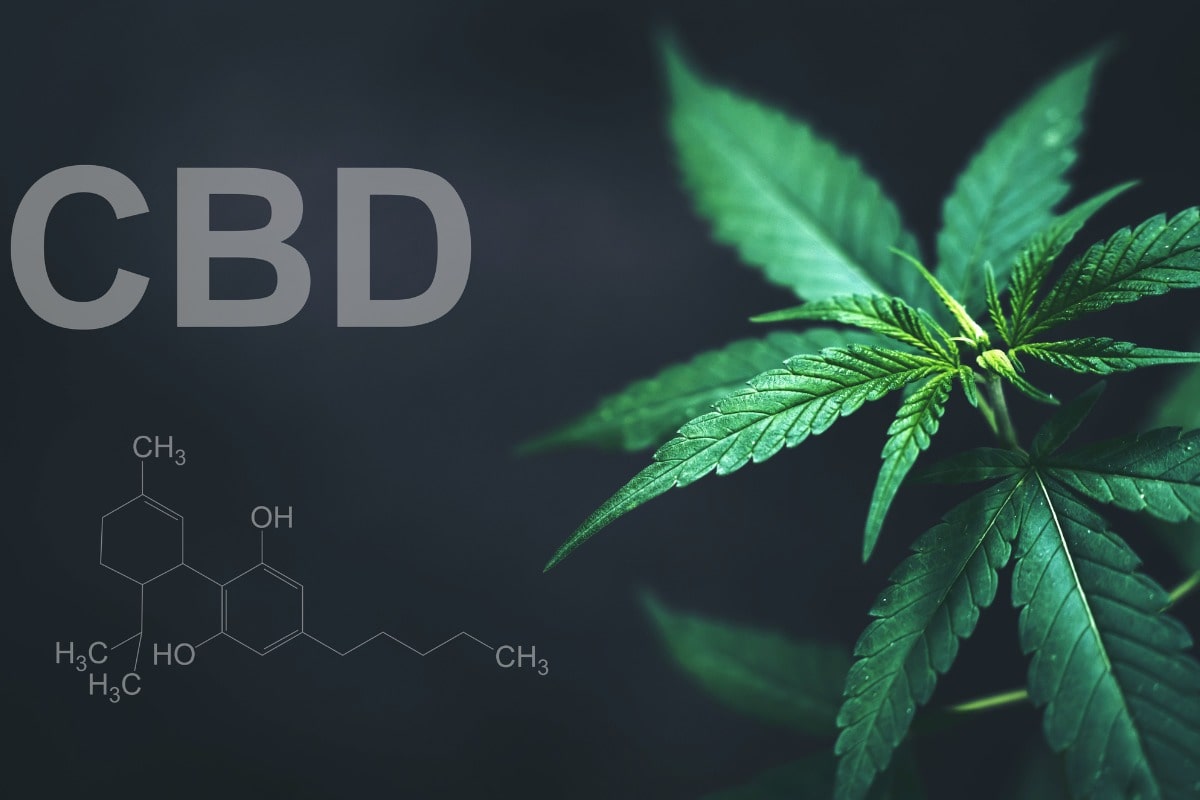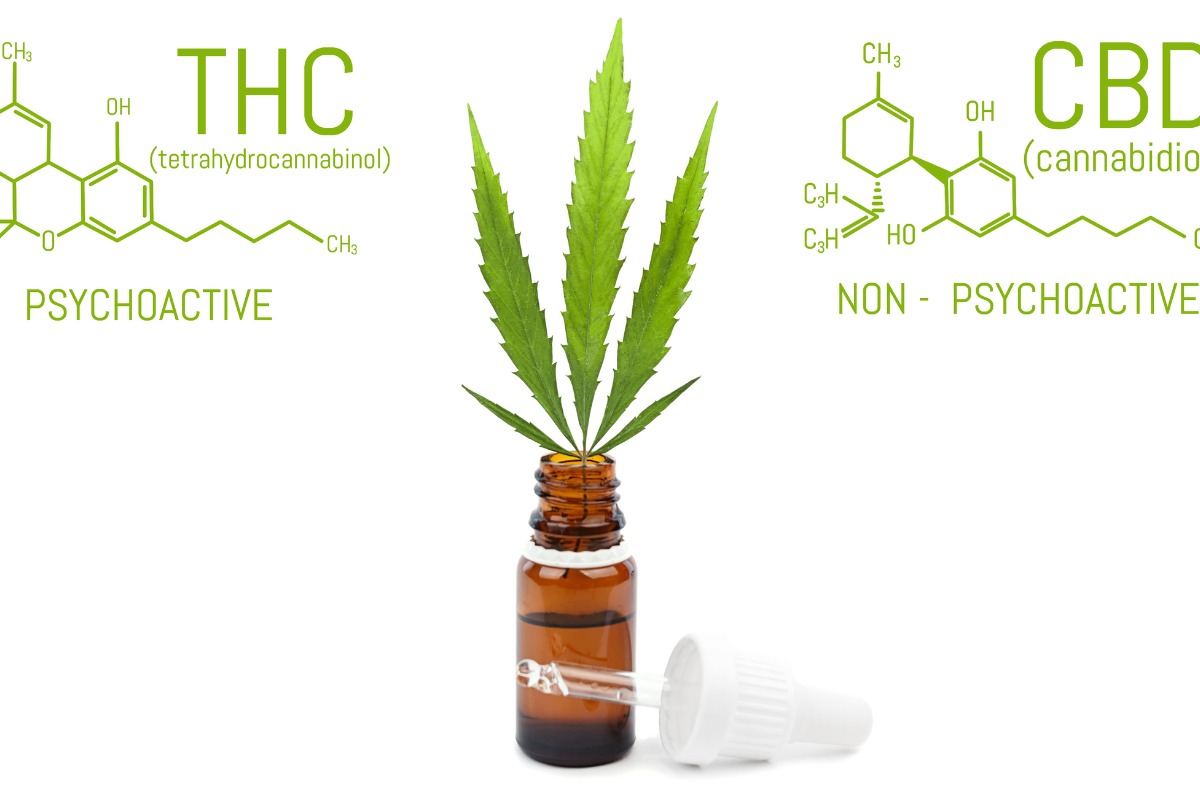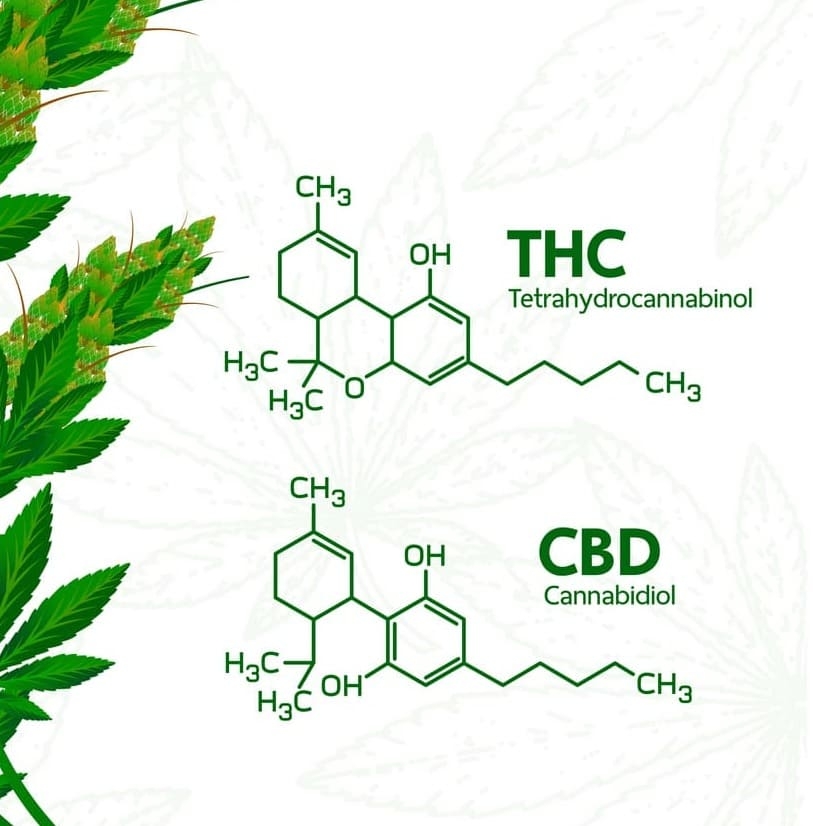In 2021, the use of CBD (cannabidiol) has become widely democratised in Europe, and more particularly in UK. This molecule extracted from hemp does not provide any psychoactive effects, unlike the THC (tetrahydrocannabinol) molecule which is considered a narcotic. However, many people still confuse these two molecules.
CBD and THC are both cannabinoids from the cannabis plant and yet they are fundamentally opposite. Whether in their composition or in the way they function, these two molecules have nothing to do with each other. In this article, we invite you to discover all the differences between CBD and THC.
How CBD works
Discovered in 1940 by American chemist Roger Adams, CBD is a cannabinoid extracted from hemp. This cannabinoid acts on the nervous system by sending signals between the brain and the various organs of the body to reduce the intensity of pain. Once in the body, CBD is metabolised into several compounds before reaching the bloodstream. It is a lipophilic molecule that accumulates in fat, which is one reason why elimination is slow.
The endocannabinoid system (ECS) is composed of two types of receptors: CB1 and CB2. It is a system that helps regulate the functioning of vital organs, the immune system as well as regions of the brain. In other words, it ensures that the whole organism functions properly. CBD has the ability to act on these receptors and causes the release of serotonin thus promoting relaxation.

How THC works
THC is another cannabinoid found in hemp. It acts on both receptors in the opioid system, but specifically on CB1 receptors.
CB1s are present in large quantities in the structures of the limbic system (areas responsible for emotions, memory, and olfaction). They therefore play a very important role in the regulation of emotions. The interaction between these receptors and THC causes euphoric and psychoactive effects.
In addition to being illegal, regular use of THC causes a considerable decrease in attention and long-term memory impairment due to over-stimulation of the receptors.
An experiment on rats shows that THC is addictive. Researchers injected rats with the molecule for several days and then abruptly stopped the THC intake. They then noticed behaviours similar to those seen in opiate withdrawal, namely compulsive behaviour, shaking, excessive salivation, etc.
What are the differences between CBD and THC?
THC and CBD are both extracted from hemp but have many differences, especially in the way they work as seen above. Let's find out what other differences remain between these two molecules.
Legality
In England, CBD is not classified as a narcotic, so its sale and consumption are authorised.
THC is classified as a narcotic. The use of this molecule can lead to 1 year of imprisonment accompanied by a fine that exceeds 3,700 euros. When products containing this molecule are used in public places, the penalties are even heavier, even if the person is doing so for therapeutic purposes. Also, you should know that THC remains in the saliva for up to 2 days after consumption. If you are tested, the limit is 1ng/mL. Even a tiny amount can be detected.
Addiction
When you use products containing CBD (oils, creams, e-liquids, etc.) there is no risk of addiction. If you decide to stop using CBD overnight, you will not experience any side effects or withdrawal feelings.
On the other hand, THC can cause some dependence according to experiments conducted. Although the symptoms of the latter are not similar to those caused by a hard drug, they are definitely present and can harm the health of the user.

Side effects
The CBD products almost never cause side effects. Some people have noted a few discomforts such as dry mouth, minimal digestive upset, or mild drowsiness. The side effects of CBD are very rare and not very severe. Moreover, these effects are never long-lasting.
On the other hand, THC can cause both short and long term side effects. The main side effects that can be experienced after taking THC are: a feeling of confusion, lack of concentration, severe drowsiness, dizziness or anxiety. In the long term, THC can cause a decrease in memory, concentration and attention.
Understanding the dangers of THC without demonising it
As you know, CBD products are authorised in UK as long as the THC level is below 0.2%. This means that the consumption of THC is clearly forbidden and viewed very negatively by the authorities.
Certainly, THC is illegal because it causes psychoactive effects and its overuse can be a health hazard. But in reality, it is no more dangerous than alcohol consumed without moderation. Moreover, it should be noted that some countries, such as the United States and the Netherlands, allow the consumption of THC. And for good reason, cannabis plants that offer a balanced ratio of CBD and THC are known for their powerful therapeutic properties, sometimes more effective than CBD alone.
So no, you cannot buy or sell THC in UK at the moment. Nevertheless, we can imagine that in the near future, the legalisation of cannabis would make THC available to the general public, as it is already the case in several dozens of countries. Thus, it seems interesting to educate oneself as to how it works without demonising it in order to avoid misinformation and drift.

